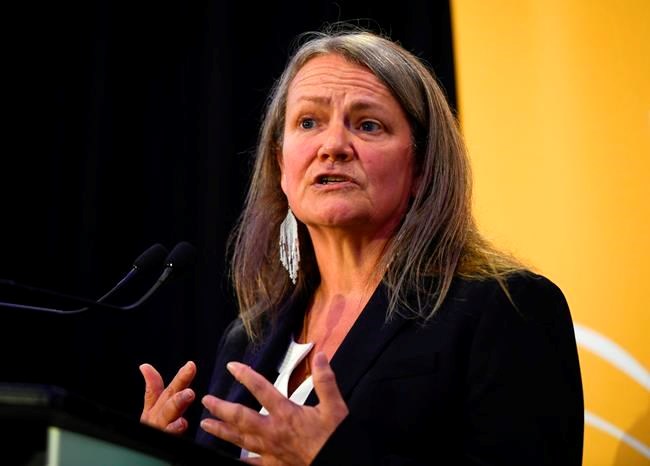OTTAWA — A Mohawk official tasked with helping Indigenous communities investigate unmarked graves says the refusal by Winnipeg police to search for the remains of missing women whose bodies are believed to have been left in a landfill is a "breach of human dignity."
Kimberly Murray made the comment at a gathering of Assembly of First Nations chiefs in Ottawa, where chiefs plan to discuss how to respond to the murders and disappearances of Indigenous women and girls.
Murray, a former executive director of the Truth and Reconciliation Commission of Canada, was appointed by the federal government to serve as a special interlocutor to help communities search for the remains of children who were forced to attend residential schools.
She told the assembly one of her office's guiding principles is that families and communities have a right to know what happened to these children, how they died and where they are buried.
"And I think about our women, that the Winnipeg police aren't going to search for those remains, like that is a breach of human dignity," she said late Tuesday.
"Those families have a right to know," she said. "International convention says they have a right to know."
Earlier Tuesday, Cambria and Kera Harris made an emotional plea outside the House of Commons for police in Winnipeg to begin a search for their mother, Morgan Harris, who went missing in May and whose remains are believed to be in a city landfill along with at least one other missing woman.
Police have charged 35-year-old Jeremy Skibicki with four counts of first-degree murder in the deaths of Harris, Marcedes Myran and Rebecca Contois, along with an unidentified woman who is known as Buffalo Woman.
Cambria Harris called it "disgusting" police won't search for her 39-year-old mother, and said she shouldn't have to beg for officials to act.
"We would ask every Canadian to consider how they would feel if it was their mother or daughter or sister or best friend whose body was lying at the bottom of a landfill. Would they not demand that she be found?" said Carol McBride, president of the Native Women's Association of Canada, in a written statement Wednesday.
"We can’t help but wonder if the Winnipeg police would have continued to look for Morgan Harris and Marcedes Myran if they had been white."
McBride added that if police in Winnipeg don't have the capacity to do this work, they should look to another investigative body.
The Assembly of Manitoba Chiefs said the decision not to search sends a "dark message."
"Human beings deserve the effort, no matter how dismal or difficult the task may seem. It is unnerving that the (Winnipeg Police Service) is creating unmarked graves in these landfill sites," Grand Chief Cathy Merrick said in a statement Wednesday.
During Question Period Tuesday, Crown-Indigenous Relations Minister Marc Miller told members of Parliament it is "very puzzling to hear the news that this landfill will not be searched," saying he hoped to get clear answers from the city.
"Clearly the federal government needs to play a role in an area where jurisdiction is a poisonous word and continues to kill Indigenous women and children in this country."
The office of Public Safety Minister Marco Mendicino, who is set to address the chiefs' assembly late Wednesday, confirmed it had not received any requests for help searching the landfill.
Winnipeg police chief Danny Smyth also said he hadn't spoken to anyone in the federal government about the matter.
The force's head of forensics spoke to the media Tuesday to provide more details about the decision not to carry out a search.
Insp. Cam MacKid said police determined it wouldn't be feasible given how much time has passed and how much has been dumped at the site, which is regularly compacted using heavy equipment.
This report by The Canadian Press was first published Dec. 7, 2022.
— With files from Brittany Hobson and Steve Lambert in Winnipeg
Stephanie Taylor, The Canadian Press



